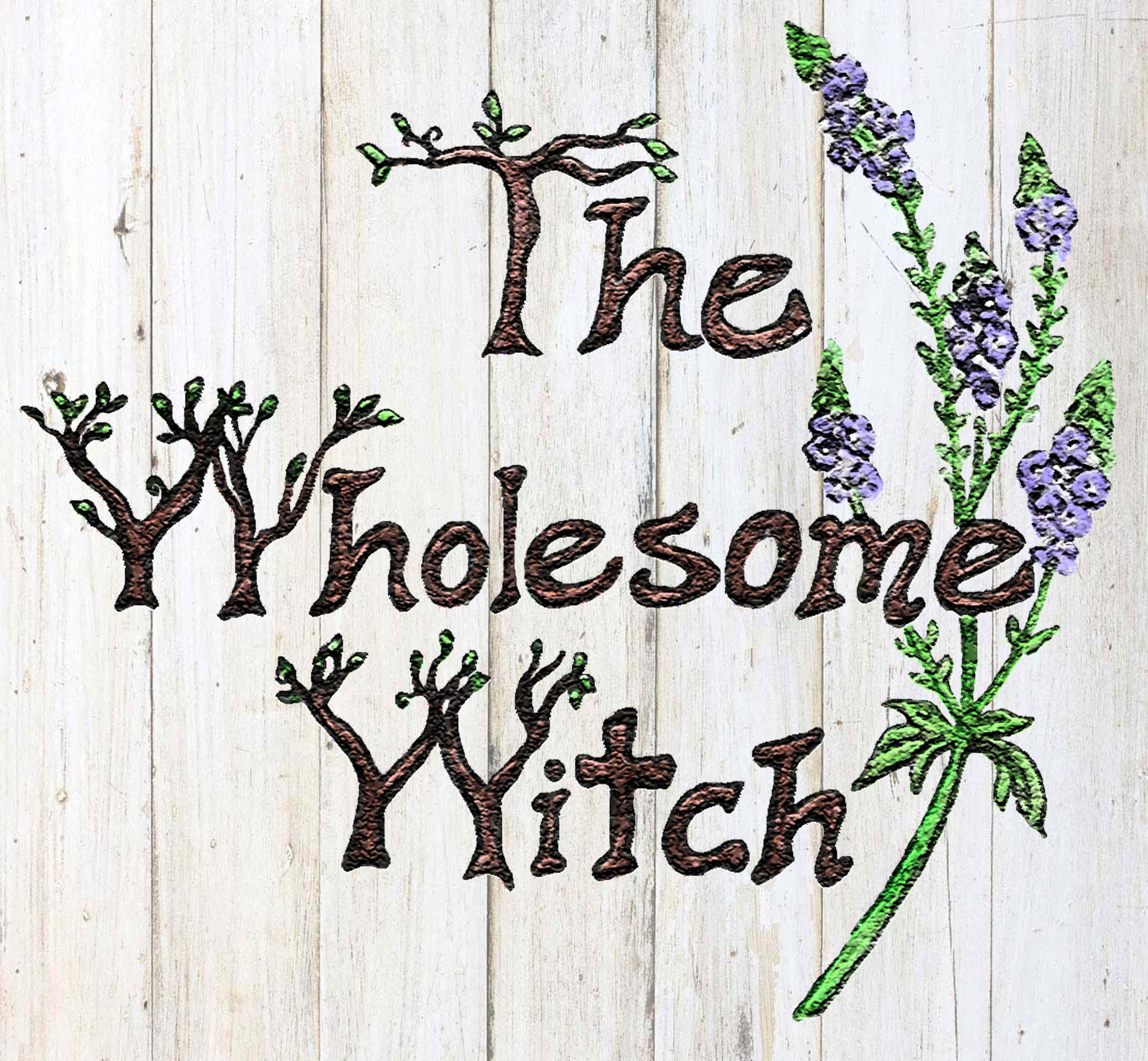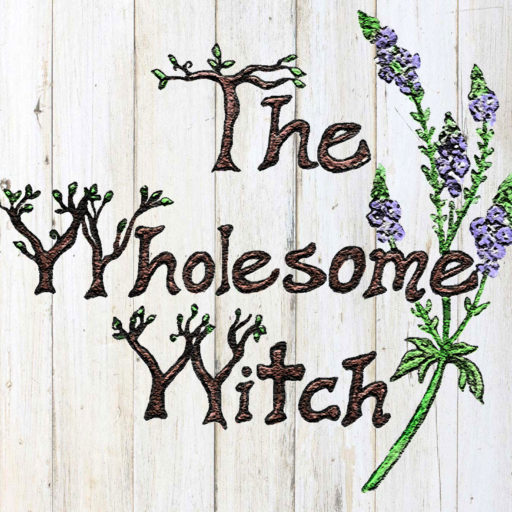What is Holistic Nutrition? Well, what it’s not is a diet. It’s a lifestyle.
Yes, I know what you are thinking, people say that about all ‘diets’. But truly, some diets are just that, diets. They are not sustainable for the long term.
And other eating plans don’t take into consideration your person as a whole. A magickal being of body, mind and soul. Holistic nutrition does just that.
Almost always, taking on a holistic way of feeding your body will spread out into other areas of your life . Before you know what is happening you will be ditching your generic cleaning products and shampoo for more natural alternatives.
Your holistic nutrition plan will turn into a holistic living plan. A total lifestyle in the most obvious sense of the word. It is addictive! In the best possible way 🙂
I have long been interested in food and how if affects the body and when I discovered the idea of holistic nutrition a few years back I was immediately intrigued.
I was so intrigued and inspired by the whole concept I quickly began to implement changes into my own lifestyle. Mu interest eventually led to my becoming a Registered Holistic Nutritionist.
So, if you are thinking you need a new healthy addiction in your life, please read on!
What is Holistic Nutrition?
I have long been interested in health and nutrition and how food affects the body. So when I discovered the idea of holistic nutrition a few years back I was immediately hooked.
I was so intrigued and inspired by the whole concept I quickly began to implement changes into my own life. This interest eventually lead to me becoming a Registered Holistic Nutritionist, and here we are.
Okay, so what does it actually mean? The word ‘holistic’ means to look at something as a whole and not just at the sum of it’s parts. That is exactly what holistic nutrition does. It looks at a person as an individual, as a unit, and feeds you based on your lifestyle, health and environment.
Those that practice holistic nutrition believe you need to be fed, body, soul, and mind to reach your optimal health.
This is achieved by eating a diet rich in whole foods (there is that word again!) and as close to their natural state as possible.
Taking on this form of eating, and with your own personal needs in mind, will have your entire self feeling invigorated, refreshed and strong. You will be eating for complete and total wellness, for balance.
The Person as a Whole…
You are unique. Therefore, what you feed yourself should also be. Healthy is healthy yes, but everyone is different and may need more or less of certain things to reach their optimal state of being.
Eating a certain way may have one person feeling energized and at the top of their game, while leaving another feeling completely exhausted.
Eating healthy is of course the goal, but what is healthy for one may not necessarily be healthy for another. Especially when you take into consideration health conditions, lifestyle and environment.
People are individuals and individual needs should be addressed.
Food as Medicine
A large part of holistic nutrition and what Holistic Nutritionists do is to address a person’s physical symptoms with food.
Food can be medicine and more and more people are seeing this. People are beginning to use food to help them heal. This has proven many times to have wonderful results.
Now please don’t take this wrong. I am NOT saying medicine is bad and you never need it. I went through full cancer treatments complete with chemotherapy. Medicine is crucial, valuable and absolutely needed.
What I am saying is we shouldn’t be reaching into the medicine cabinet for every little thing that ails us. People underestimate the effects, both positive and negative, that the food we eat has on the body, soul, and mind.
Feeling ‘Normal’
Everything that you eat plays a vital role in how your body functions and how you are feeling over all, physically, mentally and emotionally.
These days we believe so much of what we are feeling to be ‘normal’ when some things aren’t normal at all.
Issues like PMS, gas, and bloating are all deemed ‘normal’. In short though, no they aren’t.
You shouldn’t be bloated after a meal, or have horrible cramps before, or during, your menses. This is your bodies way of telling you that something is out of sync.
As certain health conditions become more prevalent in our society, such as obesity, heart disease, and anxiety, more people are turning to a holistic diet as a means to take back their health.
Where to begin your Holistic Nutrition journey?
Holistic Nutrition Begins in the Kitchen
First stop, your kitchen! Stock up on fresh whole foods and ditch the pre-packaged, chemical and sugar laden items we are surrounded by.
Also, you can SUBSCRIBE to my newsletter and receive my full Wholesome Kitchen Clean-up Guide (including Top Toxins to Toss and Wholesome Shopping List) for FREE!
Find out where to shop
Your grocery list will likely be quite different moving forward. So you will need to figure out if it’s time to change up the places you shop.
Suss out where in your neighbourhood the best farmers markets are. The produce there will be the freshest, as well as in season.
You can also research to see if you have any natural stores near by or if you might want to order some items online from places like well.ca or Thrive Market.
If you love your regular supermarket and don’t want to make a change or simply have no other shopping options close by, that’s okay! See if they have a natural section and remember to shop the perimeter of the store (I go into more detail about this in my guide).
Do your homework and find out where to get the best deals (always important, especially if you have a tight budget like I do) and freshest items in your area.
Start a holistic nutrition food journal
Record what you are eating. As well as how you are feeling, both emotionally and physically, after a meal. Once one or two weeks have passed, take a look and see if there are any patterns jumping out at you.
Do you notice you feel particularly bloated or gassy after eating certain foods? Are you tired or energetic after others?
Consider your findings when shopping for your next week and go from there. If you find you have negative feelings (either physical or mental) on days you eat certain items, try eliminating them for a week and then compare.
It takes some time and dedication to figure out what is right for you. As with everything, have patience. Your body will thank you.
Do your research
Reading this post is an excellent start. It is really just the tip of the iceberg though when it comes to information that is out there. Check out some my other nutrition posts such Why You Should Buy Organic.
Google is also your friend but be sure you are on reputable sites. There is a lot of information out there.
Visit a Holistic Nutritionist
This is especially important if you have any health conditions. They can help you with your food journaling and get you on track with a good plan of action.
So what exactly do I eat?
Fresh produce, all of it!
Of course, right?! Load up on fruits and veggies! Buy organic whenever possible. Directly from farmers is best if you are lucky enough to live close to one.
And hit up your local farmers markets. As much as you can, eat these items whole, raw and as close to their natural state as possible.
Okay, no you do not have to stop cooking your food! But eating at least some raw foods each day is an excellent practice. And yes, cooked veggies are hands down better than no veggies.
Whole grains
Avoid white flour, which is so over-process and stripped of nutrients. Always go for the whole grain options.
A lot of Holistic Nutritionists would say to avoid grains that contain gluten completely. This is especially true if you have certain health conditions, food sensitivities, or digestive issues. Gluten is definitely one of the first things to go.
BUT if you are anything like me, you like your bread lol. Just to be sure to choose good quality breads and if it lasts for 2 weeks or has Wonder on the label, it’s not good quality.
Oats, quinoa, millet and brown rice are some excellent grain choices packed with healthy fibre and nutrients.
Beans & Legumes
Chickpeas, black beans, lentils, peas, etc. Beans and legumes are some of the healthiest foods you can possibly eat. They are full of protein, B Vitamins, and of course dietary fibre. They also help you build the coveted healthy gut bacteria.
We should all be eating beans and legumes daily. Do take care to prepare them properly. They are not recommended to be eaten raw due to anti-nutrients. You can read more about anti-nutrients in this Healthline article, Legumes: Good or Bad?
Healthy fats
Avocado, nuts, extra virgin olive oils, etc. Your body needs healthy fats daily for optimal health. Don’t be afraid of them!
Ditch processed sugar
Sorry, but it needs to go. Try healthier sweet alternatives such as maple syrup, coconut sugar, and dates to sweeten your treats or put on top of your morning oatmeal.
Drink lots of fluids
Water, water, water! I can’t stress it enough. most of us do not drink enough water.
Fresh organic juices and herbal teas are also nice options.
Beverages such as fruit juices, pop, and energy drinks are unnecessary and ridden with sugars and chemicals.
And yes, alcohol should be limited. Or avoided if you are down with that. Don’t hate me lol.
But what about coffee?
We can’t forget about coffee! Coffee for me is my non-negotiable. I love coffee and there is much research examining it’s health benefits.
Dr. Li, author of Eat to Beat Disease (this book is a wealth of information btw), has it as one of his super drinks to have daily.
And daily I do! But I do buy fair-trade, organic brands and have it with just a bit of milk.
No added sugars and creams. They are what will really get you into trouble.
Though I know we are all only human and just trying to do our best. But when I say coffee, I am not talking about a Starbucks Frappacino.
There are also many in the camp of coffee is bad and disrupts many of our regular body processes.
Judgement call. Do what feels right for you and do limit your intake to 1 or 2 cups a day, not 35.
And what about meat & dairy?
If you are not vegetarian or vegan and these items are part of your diet I do recommend cutting back your consumption.
And when buying animal products; always purchase organic, grass-fed and free range options. Again, directly from the farmer is the absolute best option.
Dairy also often gets eliminated when trying to figure out what causes certain symptoms or reactions in people. Many individuals have a sensitivity to dairy and just don’t realize it. Remember that the bloating I mentioned above is NOT normal.
Boring? Absolutely not!
Now make no mistake, holistic nutrition does not mean boring, tasteless or bland. On the contrary! There is so much you can do with good, fresh, whole foods and ingredients. Tasty and delicious things.
Yes, you can even bake. The best part, the more you eat these things, the more your body will crave them. It will want more fresh produce and less of the processed sugary treats it may be used to now.
As always, I recommend Pinterest for some serious recipe inspiration! Or you can give my Vegan Blueberry Scones a try.
Benefits of Holistic Nutrition, they are endless but here are a few:
- boost in energy
- weight loss
- happier
- more restful sleep
- healthier skin and hair
- stronger immune system
- decrease risk of many diseases
- bye bye bloating
- did I mention happier? 😉
A Holistic Nutrition lifestyle may lower risk of these illnesses:
- Diabetes
- Obesity
- Heart Disease
- High Blood Pressure
- Cancer
- Colitis
- Gout
- IBS
Final Musings
Are you convinced? Skeptical? Like I said earlier, do your reseach. The truth is out there (bonus points for getting that reference lol).
We all know there is no such thing as perfect and adopting this lifestyle does not mean eating perfectly. It’s all about finding balance and focusing on whole foods in their natural state.
However, don’t completely deprive yourself either. If you are dying to indulge in a cookie, do so. When you are at a party and they have your favourite special treat, have some. We all just do our best and, as you likely have heard a million times, moderation is key.
Finally, keep in mind what I mentioned before, the longer you keep up with this way of life the easier it will be. The less sugar or fried foods you have, the less you will want them. It may not seem true, but trust me it is.
Our body adapts and gets used to things, like sugar, and they are addictive. Therefore, like any addiction, you can kick it.
You will end up loving your new energized, fulfilled, and balanced self. Those ‘bad’ foods you used to crave will be but a distant memory.
Give it a try. Pretty darn sure you won’t be filled with regret.
Disclaimer: These are only opinions
Now, please keep in mind that these are my views, opinions, and things I have learned through my holistic nutrition training, research and personal experience. They do not replace the advice from a medical professional. Remember to always speak with your doctor before drastically changing your diet. Especially where illness and medications are involved.
I Want to Hear From You!
Tell me, what are your favourite healthy foods? Do you already follow a holistic approach to your nutrition? Comments please! They are always welcome.
Don’t forget if you are feeling inspired you can SUBSCRIBE to my blog and receive my full Wholesome Kitchen Clean-up Guide for FREE!
Until next time pixies.
Yours in health and magick,
Krystle xo









Wholesomewitch
Hi Liv!
Right?! It does get easier 🙂 Great work on the breakfast transition and mmmm green smoothies! Lol. I think a little coffee is okay just not in excess and I don’t think I’ll ever give it up. Tea doesn’t cut it for me either. I wish it did!
As for organic, it can certainly get pricey to purchase everything that way. I strive to purchase as much as I can afford also lol. There is lots of information that conflicts out there. But I am definitely on the organic side. It just helps in cutting out that many more toxins….we are surrounded by so many it certainly can’t hurt. Airing on the side of caution I suppose. The way I do my organic purchasing, it usually purchasing the organic items that are on sale to be honest. If I know I can’t buy everything organic that week, hunting the sales is my go to strategy. A few foods that are more recommended to go organic though include apples, grapes, tomatoes, cucumbers and berries as they hold onto more of the pesticides and we don’t peel them. And, always remember to wash first! Also, dairy (if you eat it) due to the antibiotics and growth hormones that are given to the cows 🙁 Planning a whole post on purchasing organic very soon so keep watch 😉
Liv
I am finding that ditching the processed foods easier and easier. I slowly transitioned from eggs with english muffins in the mornings, to eggs with sweet potatoes, to now eggs and all sorts of veggies. Green smoothies with avocados are my new favourite mid day snacks right now!
Like you, I am a coffee addict, and I think this is my next challenge. How to eliminate (or at least decrease) coffee from my diet. Tea just ain’t cutting it!
What are your feelings on organic food? I do prefer to buy organic, but it can get so pricey! Do you have any thoughts on what fruits/veggies should be organic and which maybe are less important, in terms of organic? I have read some conflicting ideas about that!